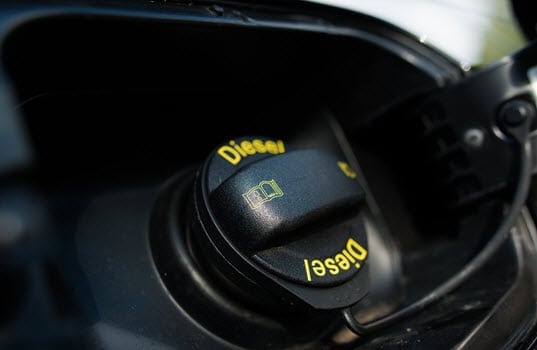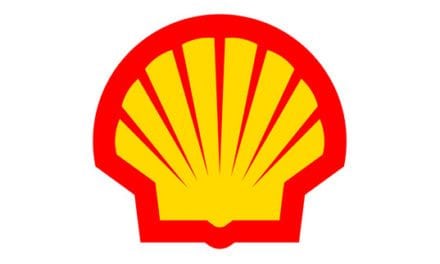By Ezra Finkin, Diesel Technology Forum
There was much to celebrate this 20th anniversary of Air Quality Awareness Week (April 30-May 4). Consistent progress to reducing emissions has been achieved largely through cleaner fuels and technologies like clean diesel.
Our Ambient Air Quality is Much Improved: Oxides of nitrogen (NOx), a smog forming compound, are down 31 percent while fine particle emissions (PM) are down 21 percent between 1996 and 2016, the last full year for which EPA reports emissions data.
Mobile Source Emission Contributions Are Down: Emissions from things that move – cars, trucks, equipment, ships, trains, etc. – have fallen. As a share of NOx emissions, mobile sources contribute 36% today down from 52 percent in 1996. For fine particles, mobiles sources are down from 21 percent in 1996 to 14 percent today.
Clean Technologies Drive Air Quality Improvements: The advancement in clean technologies, notably clean diesel technologies, is a leading contributor to these reductions. As mobile source emissions have fallen, the number of miles traveled by cars, trucks, buses and equipment grew by 31 percent. These improvements in emission reduction are largely provided by the advancements of clean technologies including clean diesel technology.
Clean Diesel Pathway to Better Air Quality
Today, diesel is the fuel and powertrain choice of work. Ninety-nine percent of the largest Class 8 commercial vehicles are powered by diesel and the technology is the powertrain of choice for larger construction and agricultural equipment and much larger applications like tug boats and locomotives. Thanks to the collaboration between industry and regulators, clean diesel technologies are ready and available today to meet the demanding duty cycle of equipment owners while reducing emissions to near–zero levels that have a part to play in the cleaner air we all breathe.
Shortly after the first anniversary Air Quality Awareness Week, regulators, engine manufacturers and fuel producers began working on the challenge that was known as clean diesel, planning for the pathway to slash emissions from diesel engines by over 90 percent. The first step was the shift to a cleaner ultra-low sulfur diesel fuel that was implemented beginning in 2006. With access to cleaner diesel fuel, the latest engine designs and aftertreatment technologies were developed for trucks and more recently for off-road equipment. Together, these technologies reduce emissions to near zero levels.
A clean diesel Class 8 truck the meets the most recent EPA tailpipe emissions standard can reduce NOx emissions by 2.3 tons relative to older technologies.
A tug boat powered by the latest clean diesel engines can reduce emissions by 14.9 tons relative to older technologies.
Clean diesel is already out on the road and in the field moving our economy and reducing emissions. Today, about one-in-three commercial vehicles on the road comes with a clean diesel engine. The fleet of these clean diesel trucks has removed 21 million tons of NOx emissions since 2011, when EPA required new trucks rolling of assembly lines meet the near-zero NOx standard. Getting more new and newer trucks in service, along with larger off-road equipment, will further contribute to emission reductions and air quality improvements.
What about the next 20 years?
The Pattern of Continuous Improvement of Diesel Technology will Accelerate: One of the added benefits of the clean diesel platform is its capability for continuous improvement. The diesel engine of today looks nothing like the engine patented by Rudolf Diesel over a century ago. Engine and component manufacturers are hard at work taking today’s near-zero emissions technology closer to zero, just as they work to reduce greenhouse gas emissions and achieve new efficiency milestones for tomorrow. Hybridization and renewable fuels are large opportunity areas for diesel. Biofuel producers will be expanding access to renewable fuels where enable the diesel engine of tomorrow is optimized to operate exclusively on renewable low-carbon fuels.
Sustaining air quality progress is a celebration and challenge. We must embrace the progress that all fuels and technologies play in achieving the clean air progress for the future.
 Ezra Finkin is the policy director for the Diesel Technology Forum. The Diesel Technology Forum is a non-profit organization dedicated to raising awareness about the importance of diesel engines, fuel and technology. Diesel Technology Forum members are global leaders in clean diesel technology and represent the three key elements of the modern clean-diesel system: advanced engines, vehicles and equipment, cleaner diesel fuel and emissions-control systems.
Ezra Finkin is the policy director for the Diesel Technology Forum. The Diesel Technology Forum is a non-profit organization dedicated to raising awareness about the importance of diesel engines, fuel and technology. Diesel Technology Forum members are global leaders in clean diesel technology and represent the three key elements of the modern clean-diesel system: advanced engines, vehicles and equipment, cleaner diesel fuel and emissions-control systems.











